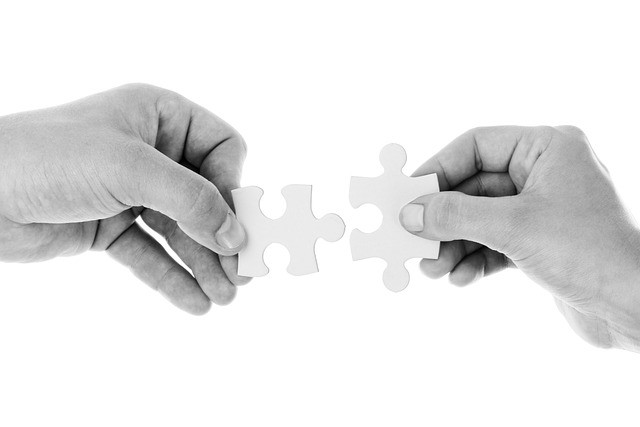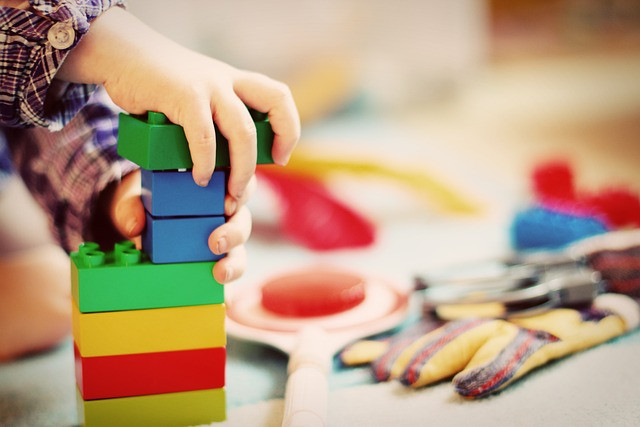
Building rapport is a crucial skill in today’s professional landscape. Whether it’s establishing connections with colleagues, clients, or customers, the ability to create rapport can greatly impact success.
This article explores the importance of rapport building, its benefits, and key principles to develop strong rapport. Additionally, we delve into the power of active listening, mirroring, and matching techniques.
Whether in personal relationships or team environments, mastering techniques to build rapport is essential for effective communication and long-term success.
Table of Contents
The Importance of Building Rapport

Establishing a strong rapport with clients is crucial for building trust and fostering long-term relationships. Building rapport refers to the process of developing a good rapport or connection with someone, which involves creating mutual trust and understanding.
This is achieved through active listening and effective communication skills. By actively listening to clients and understanding their needs, concerns, and preferences, professionals can establish rapport and build a close and harmonious relationship.
When a good rapport is established, it becomes easier to work together and collaborate effectively, leading to better working relationships. Building rapport also plays a vital role in creating meaningful relationships with clients, as it allows professionals to connect on a deeper level and provide personalized solutions.
Strong interpersonal skills are key to establishing rapport and maintaining strong and lasting relationships with clients.
Understanding Rapport and Its Benefits

Developing a strong rapport with others has been shown to foster trust, improve communication, and enhance overall collaboration within professional settings. Understanding rapport and its benefits can greatly enhance one’s ability to build meaningful connections and establish mutual understanding.
Here are three key aspects of rapport building:
1. Body language: Nonverbal cues like facial expressions, gestures, and posture are vital for rapport. Open and relaxed body language signals approachability and fosters a positive atmosphere.
2. Eye contact: Making and maintaining eye contact demonstrates attentiveness and interest. It conveys respect and helps establish a connection with the other person.
3. Actively listen: Actively listening to others not only shows genuine interest but also allows for deeper understanding and meaningful conversations.
Key Principles to Build Rapport

One essential aspect of fostering strong connections in professional settings is understanding and applying key principles that contribute to effective communication and relationship-building.
Building rapport is crucial in establishing harmonious relationships, especially during customer calls or when building relationships with colleagues and clients. To develop rapport, professionals need to establish a connection with others by actively listening, showing empathy, and demonstrating emotional intelligence.
Effective communication plays a vital role in rapport building, as it involves clear and concise expression of thoughts, active engagement in conversations, and the ability to adapt communication styles to meet the needs of others.
Developing Active Listening Skills

Understanding the importance of active listening in professional interactions is key to fostering effective communication and building strong relationships. Developing active listening skills allows us to connect with others on a deeper level and establish rapport.
Here are three ways active listening contributes to rapport building:
1. Paying attention to others’ feelings: Active listening involves not only hearing the words being spoken but also understanding the emotions behind them. This allows us to empathize with others and create a meaningful connection.
2. Establishing an emotional connection: By actively listening and showing genuine interest, we can build an emotional connection with the person we are interacting with. This helps in developing personal relationships and strengthening rapport.
3. Encouraging deeper conversations: Active listening prompts us to ask rapport-building questions and delve into topics that are of shared interest. This leads to more engaging and meaningful conversations, further enhancing the bond between individuals.
The Power of Mirroring and Matching

Mirroring and matching, a potent interpersonal technique, involves subtly imitating body language and speech patterns to create a sense of connection and understanding. It fosters collaboration, deeper connections, and effective follow-up questions, enhancing relationships.
In customer interactions, it boosts empathy, satisfaction, and loyalty. This technique is invaluable for rapport in personal and professional relationships.
Finding Common Ground and Shared Interests
Finding common ground and shared interests is crucial in establishing a sense of connection and understanding with others, fostering more meaningful and collaborative relationships. When engaging in rapport building, it is important to identify and explore shared interests as they serve as a foundation for building a good relationship. Here are three reasons why finding common ground is essential:
1. Building trust: Shared interests create a sense of familiarity and trust between individuals. This allows for more open and honest communication, as both parties feel a sense of connection and understanding.
2. Developing empathy: When we discover shared interests, it becomes easier to put ourselves in the shoes of others. This empathy helps us relate to their experiences, thoughts, and emotions, leading to a deeper understanding and appreciation of their perspective.
3. Creating a true connection: Shared interests provide a platform for genuine connection and engagement. By asking open-ended questions and actively listening during small talk or networking events, we can find common ground and foster a true connection with others.
Building Trust and Credibility
Establishing trust and credibility is crucial in developing strong and reliable relationships, as it creates a solid foundation based on honesty, integrity, and reliability.
Building trust and credibility requires effort and consistency, especially in professional settings such as networking events or with direct reports. One way to build trust is by actively listening and understanding the other person’s needs, showing empathy and genuine interest.
Additionally, maintaining a shared sense of values and goals can contribute to the development of great relationships. A firm handshake, maintaining confidentiality, and delivering on promises are also essential in building trust.
Ultimately, trust and credibility are vital for increasing sales and fostering long-term partnerships. By consistently demonstrating honesty, integrity, and reliability, individuals can establish themselves as trustworthy professionals and develop strong connections in their personal and professional lives.
Enhancing Nonverbal Communication
Enhancing nonverbal communication is essential for building rapport and developing strong relationships with customers. Nonverbal cues, such as body language, facial expressions, and tone of voice, play a significant role in creating a connection and fostering trust.
To encourage smoother interactions and build rapport, consider the following:
1. Pay attention to body language: Maintain an open posture, make eye contact, and use gestures to convey interest and understanding.
2. Use encouraging sounds: Nodding, ‘mm-hmm,’ and other positive vocal cues demonstrate active listening and show that you value what the customer is saying.
3. Adapt your tone of voice: Speak with warmth and empathy to create a welcoming atmosphere and put customers at ease.
Overcoming Barriers to Rapport Building
To establish strong connections with customers, it is important to address and overcome any barriers that may hinder effective communication. Rapport building is a crucial aspect of developing relationships in business. However, there are often obstacles that can impede the process.
Overcoming these barriers is essential to ensure that both parties understand each other and can have a meaningful conversation. When meeting new acquaintances or engaging in a business conversation, it is vital to identify and address any potential barriers such as language barriers, cultural differences, or misunderstandings.
Cultural Considerations in Rapport Building
Cultural sensitivity plays a crucial role in fostering effective communication and understanding between individuals from different backgrounds. When it comes to building rapport, it is equally important to consider cultural considerations.
To build great rapport, one must be aware of and respect cultural differences. Here are three key aspects to consider:
1. Respect for cultural norms: Understanding and respecting the cultural norms of the person you are communicating with is essential. This includes being aware of appropriate greetings, body language, and personal space.
2. Active listening: Listening actively and attentively to the other person demonstrates respect and shows that you value their perspective. It is important to be open-minded and avoid making assumptions or judgments based on cultural differences.
3. Adaptability: Being adaptable and flexible in your communication style is crucial. Different cultures may have different communication preferences, such as direct or indirect communication. Adapting your approach to match the other person’s communication style can help establish a stronger rapport.
Good Rapport in Professional Settings
In professional settings, fostering rapport through trust, respect, and effective communication promotes collaboration and goal achievement. It encourages teamwork, productivity, and a supportive work culture.
Building rapport involves active listening, empathy, reliability, and appreciation for contributions, enhancing working relationships and overall success.
Building Rapport in Personal Relationships
Developing strong connections and mutual understanding in personal relationships is essential for fostering healthy communication and deepening emotional bonds. Building rapport is a crucial aspect of nurturing these relationships, as it creates a foundation of trust and empathy.
Here are three key strategies to effectively build rapport in personal relationships:
1. Active Listening: Paying close attention to the thoughts, feelings, and concerns of the other person shows genuine interest and validates their experiences.
2. Empathy: Putting yourself in the other person’s shoes and understanding their emotions helps create a safe and supportive environment.
3. Authenticity: Being true to yourself and expressing your thoughts and emotions honestly enables the other person to feel comfortable doing the same, fostering a deeper connection.
Rapport Building in Team Environments
Effective teamwork relies on strong interpersonal connections and collaboration. Positive rapport promotes open communication, trust, and goal achievement.
Build rapport through team-building activities, transparent communication, and an inclusive culture. Leaders foster rapport by promoting belonging, recognizing strengths, and encouraging collaboration.
Connected and valued team members contribute their best, share ideas, and support one another, leading to increased productivity, innovation, and overall success.
Body Language Building in Sales and Customer Service
Nonverbal communication is vital in sales and customer service, as it helps build rapport and conveys trust, confidence, and empathy. In a competitive business world, body language plays a crucial role in building rapport and impacting success.
Three key ways it enhances interactions:
Eye contact: Shows attentiveness and sincerity, fostering trust and connection.
Posture and gestures: Confidence and professionalism are displayed through good posture and open body language. Positive gestures, like nods and smiles, convey empathy.
Vocal tone and facial expressions: A friendly tone and genuine facial expressions create a welcoming atmosphere and enhance customer experiences.
Sustaining and Maintaining Rapport Over Time

To maintain lasting client and customer connections, sales and customer service pros must show trustworthiness and empathy through communication and actions.
Building rapport over time is vital for loyalty. Sales reps should follow up, address issues, and personalize interactions.
Listening and empathetic responses foster strong, enduring relationships, boosting satisfaction and loyalty.
Frequently Asked Questions
How Can Rapport Building Be Incorporated Into Team Environments?
In team environments, building rapport is essential for fostering effective communication, trust, and collaboration. It can be achieved through active listening, empathy, open-mindedness, and regular team-building activities to create a positive and cohesive work culture.
What Are Some Common Barriers to Build Rapport and How Can They Be Overcome?
Some common barriers to building rapport include lack of trust, communication issues, and cultural differences. These can be overcome by promoting open dialogue, active listening, and fostering a supportive and inclusive team environment.
Are There Any Cultural Considerations to Keep in Mind When You Build Rapport?
When building rapport, it is crucial to consider cultural factors. Cultural norms, values, and communication styles vary across societies, and being aware of these differences can help establish a stronger connection and avoid potential misunderstandings.
What Are Some Effective Strategies for Sustaining and Maintaining Rapport Over Time?
To sustain rapport, use active listening, regular communication, genuine interest, mutual respect, reliability, consistency, and adaptability to changing relationship needs.
How Can Body Language Be Used to Build Rapport in Sales and Customer Service Interactions?
Body language can be a powerful tool for building rapport in sales and customer service interactions. Nonverbal cues such as maintaining eye contact, using open and relaxed postures, and mirroring the customer’s gestures can help establish trust and connection.
Conclusion

In conclusion, building rapport is a crucial skill in establishing and maintaining relationships. Understanding the principles of rapport and actively listening to others can help foster trust and connection.
Sustaining and maintaining rapport over time is essential for strengthening relationships and achieving mutual goals.